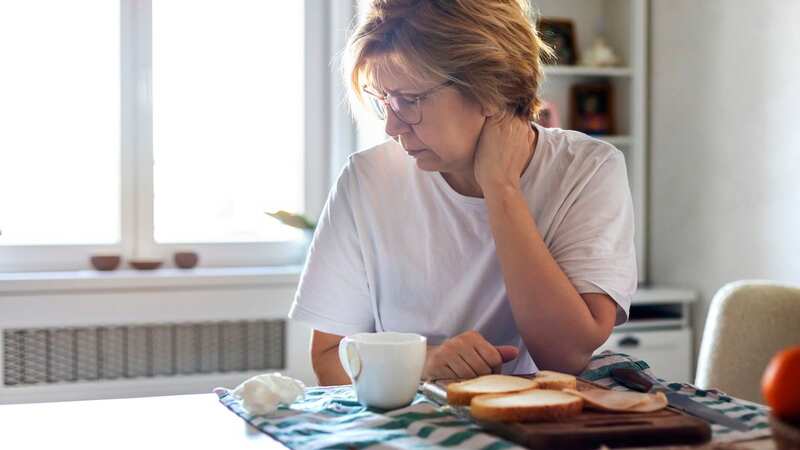

If you find yourself experiencing these symptoms, it's worth booking an appointment with your doctor.
Chances are you're feeling a bit sluggish after all the festive food at Christmas. But uncomfortable fullness and extreme bloating can be a subtle signal of ovarian cancer, according to experts.
While it may not mean that you have the serious health condition, awareness of the full range of symptoms is crucial when it comes to early detection.
Detecting cancer sooner rather than later is important to ensure you get the best prognosis possible, so if you notice that you're losing your appetite, finding it hard to eat and feeling nauseous, or that you feel full more quickly than normal, it is worth getting yourself checked out by a doctor.
According to Cancer Research, early detection is absolutely crucial in the best prognosis for ovarian cancer, with 95 percent of those who are diagnosed in the earliest stages of the disease surviving it.
 Teachers, civil servants and train drivers walk out in biggest strike in decade
Teachers, civil servants and train drivers walk out in biggest strike in decade
However, this number drops when the cancer is only diagnosed once it has reached a more advanced stage, with only an average of 15 percent survival rate once it has reached stage four - the most advanced.
There are two other important symptoms to look out for alongside difficulty eating and being full up quickly that could be signs of ovarian cancer, according to the NHS.
Firstly, keep an eye out for persistent bloating - this doesn't mean the normal kind that comes and goes, and "increased abdominal size". Secondly, you should watch out for any pain in your abdomen or pelvis that is persistent.
The NHS notes that it can be difficult to diagnose ovarian cancer early, because the symptoms cross over with other common conditions, like Irritable Bowel Syndrome (IBS) and PMS.
While the three main symptoms are detailed above, others can include:
- Back pain
- Pain during sex
- Needing to urinate more frequently than usual
The NHS recommends if you have symptoms that it's a good idea for to you start keeping a diary of them. This will help you keep track of how often they occur, and give your doctor the best picture if you decide to get checked out.
If you notice while keeping your diary that the symptoms are happening on most days for a period of three weeks are longer, they advise booking an appointment with your GP.
Ovarian cancer is uncommon in those aged under 40, and so even though "it's unlikely they're being caused by a serious problem, it's best to check."
"If you've already seen your GP and the symptoms continue or get worse, you should go back and explain this. You know your body better than anyone," the NHS explains.
Do you have a story to tell? Email: emma.mackenzie@reachplc.com
 Greggs, Costa & Pret coffees have 'huge differences in caffeine', says report
Greggs, Costa & Pret coffees have 'huge differences in caffeine', says report